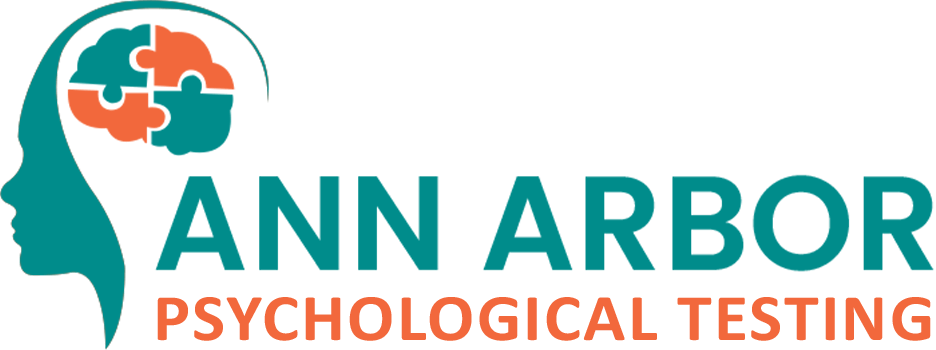Learning Disorder Testing in Ann Arbor
At our Ann Arbor clinic, we provide comprehensive learning disorder testing to help individuals understand challenges related to reading, writing, math, and other academic skills. Learning disorders, such as dyslexia, dysgraphia, and dyscalculia, can significantly impact a person's performance in school, work, and daily life. Our psychological assessments for learning disorders are designed to identify the specific challenges you or your child may be facing and provide clear, actionable recommendations for support and intervention.
Steps and Timeline for Learning Disorder Testing
We follow a structured approach to ensure accurate and personalized results:
- Initial Consultation (Telehealth, 30-60 minutes): We start with a brief consultation to understand your concerns and determine if learning disorder testing is appropriate. This step helps us tailor the evaluation to your specific needs.
- Clinical Interview (Telehealth, 1-2 hours): During this interview, we explore academic, developmental, and personal history in detail. Understanding background factors allows us to identify potential learning difficulties and other contributing factors.
- In-Person Testing (4-6 hours): This full day of testing at our Ann Arbor clinic includes standardized assessments to evaluate skills like reading, writing, math, and cognitive abilities such as memory and processing speed. These tests provide a clear picture of the individual’s learning profile and areas of difficulty.
- Report Writing (1 week): After the testing is completed, our clinicians review and analyze the results. We then write a comprehensive report, which includes a diagnosis (if applicable) and recommendations for accommodations, interventions, or academic support.
- Feedback Session (Telehealth, 1 hour): In the final step, we review the report with you in a telehealth session. We discuss the results, explain any diagnoses, and provide detailed recommendations for next steps, such as educational accommodations, tutoring, or therapies.
The entire learning disorder testing process in Ann Arbor typically takes 2-3 weeks from the initial consultation to the feedback session, ensuring you receive timely and actionable insights.
Below is an overview of the structured process we follow, designed to offer a personalized and thorough evaluation.
Initial Consultation
The process begins with a 30-60 minute telehealth consultation. During this session, we discuss your or your child’s specific concerns related to learning and academic performance. Whether it’s difficulty with reading comprehension, problems in math, or struggles with writing, this consultation helps us determine whether learning disorder testing is appropriate. We also outline the general testing process and answer any initial questions you may have.
This consultation ensures that the evaluation is tailored to meet your specific needs and goals.
Clinical Interview
The process begins with a 30-60 minute telehealth consultation. During this session, we discuss your or your child’s specific concerns related to learning and academic performance. Whether it’s difficulty with reading comprehension, problems in math, or struggles with writing, this consultation helps us determine whether learning disorder testing is appropriate. We also outline the general testing process and answer any initial questions you may have.
This consultation ensures that the evaluation is tailored to meet your specific needs and goals.
In-Person Testing
The core of the process is the in-person testing, conducted over the course of a full day (4-6 hours) at our Ann Arbor clinic. This phase includes a battery of standardized assessments that are designed to measure:
- Reading skills (e.g., comprehension, decoding, fluency)
- Writing skills (e.g., spelling, composition, handwriting)
- Mathematical abilities (e.g., calculations, problem-solving)
- Cognitive functioning (e.g., memory, processing speed, executive functioning)
These assessments allow us to pinpoint specific areas of difficulty and provide a detailed understanding of how these challenges impact academic performance. We ensure that the testing process is as comfortable and stress-free as possible, providing breaks and accommodations as needed.
Report Writing
Once the testing is completed, our clinicians analyze the results and prepare a detailed report, a process that typically takes about one week. The report includes:
- A summary of the testing results
- A diagnosis (if applicable), such as dyslexia or dysgraphia
- Clear, actionable recommendations for interventions or academic accommodations
This report is designed to be a comprehensive guide for understanding the test results and how to address the identified learning challenges. Our recommendations might include specific academic supports, tutoring, or therapies to help you or your child succeed.
Feedback Session
The final step is a telehealth feedback session, where we review the results of the testing and discuss the contents of the report. This session is an opportunity to explain the findings in detail, answer any questions, and discuss the next steps. We will also provide guidance on how to implement the recommendations, such as pursuing educational accommodations (e.g., an IEP or 504 plan), individualized tutoring, or therapy.
The feedback session ensures that you fully understand the results and feel supported in addressing the learning challenges identified through the assessment.
Timeline and Next Steps
From the initial consultation to the final feedback session, the learning disorder testing process in Ann Arbor typically takes about 2-3 weeks. This timeline allows us to provide comprehensive and timely results so that you can quickly implement the appropriate supports.
If you or your child is facing academic difficulties and you suspect a learning disorder, our clinic is here to help. Contact us today to schedule your initial consultation and take the first step toward better understanding and addressing learning challenges.
